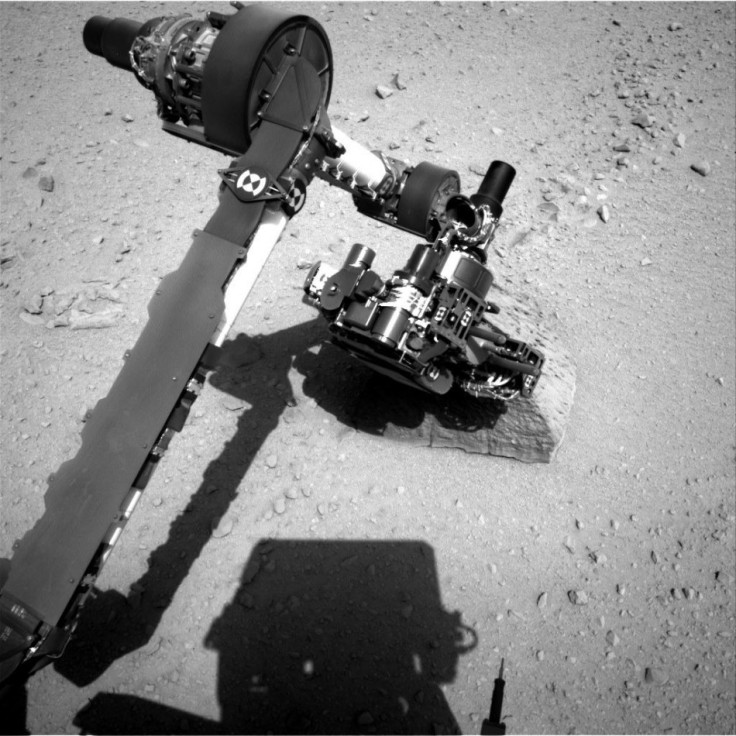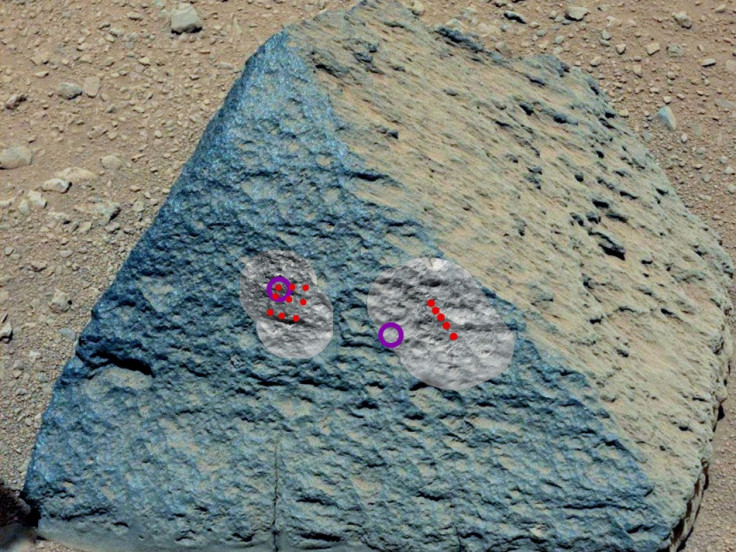Newly Discovered Mars Rock Gives Scientists the Taste of Booze [PICTURES]

Nasa's Curiosity rover has found an "unusual" rock on Mars which reminded scientists of making booze.
Curiosity, harnessing its lasers and X-rays for the first time, detected a football-sized rock which scientists have subsequently named "Jake Matijevic", after a Nasa engineer who died shortly after the rover landed on Mars two months ago.
According to the scientists co-ordinating the exploration campaign, the rock's composition is unlike anything previously found on Mars - and is similar in many ways to the production of alcohol.
"The way in which this type of rock forms ...is like how applejack liquor was made," said Professor Edward Stolper, who went on to explain:
"You take hard cider, and the way it was made in colonial times is they would put it out in big barrels in the winter and it would freeze -- but not fully, so you'd crystallize out ice and you'd make more and more and more concentrated apple-flavoured liquor.
"This is precisely what happens when you generate magma on a planet. You generate magma by melting in the interior, it comes to the surface and, just like the applejack, when you cool it, it crystallizes. When it partially crystallises, it generates a liquid that concentrates particular elements in it that are not in what's crystallising."
The research team added that Jake Matijevic bore a remarkable similarity to some terrestrial rocks, given that it is rich in materials such as sodium and potassium, and poor in magnesium and iron.
The combination matched with a kind of rock that "is widespread on Earth, on oceanic islands such as Hawaii, and St Helena, and the Azores; and also in rift zones like the Rio Grande and so forth," added Stolper.
Curiosity landed on Mars' Gale Crater to investigate if the Red Planet ever hosted microbial life or an environment able to support it.

© Copyright IBTimes 2025. All rights reserved.






















